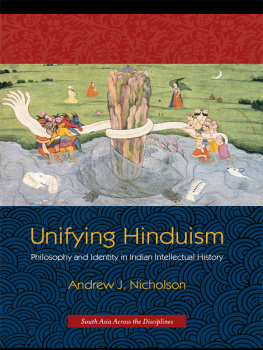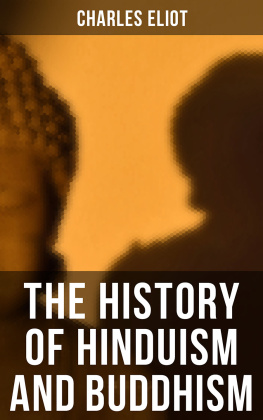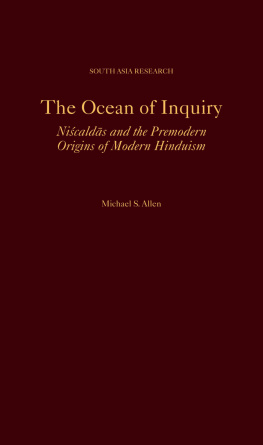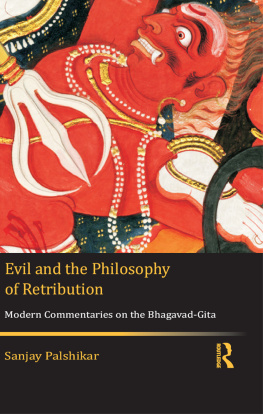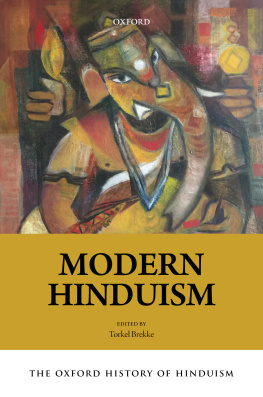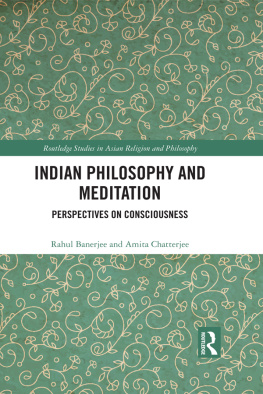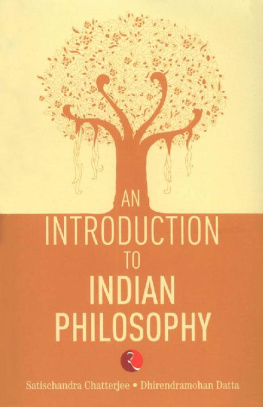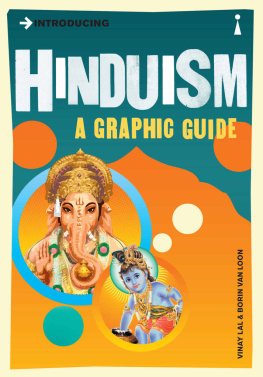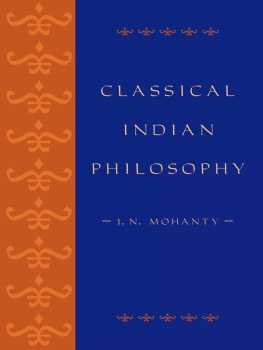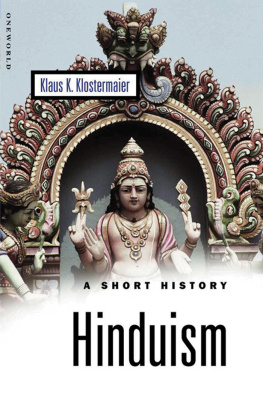UNIFYING HINDUISM
SOUTH ASIA ACROSS THE DISCIPLINES
SOUTH ASIA ACROSS THE DISCIPLINES

EDITED BY DIPESH CHAKRABARTY, SHELDON POLLOCK, AND SANJAY SUBRAHMANYAM
Funded by a grant from the Andrew W. Mellon Foundation and jointly published by the University of California Press, the University of Chicago Press, and Columbia University Press
Extreme Poetry: The South Asian Movement of Simultaneous Narration by Yigal Bronner (Columbia)
The Social Space of Language: Vernacular Culture in British Colonial Punjab by Farina Mir (California)
Everyday Healing: Hindus and Others in an Ambiguously Islamic Place by Carla Bellamy (California)
South Asia Across the Disciplines is a series devoted to publishing first books across a wide range of South Asian studies, including art, history, philology or textual studies, philosophy, religion, and the interpretive social sciences. Series authors all share the goal of opening up new archives and suggesting new methods and approaches, while demonstrating that South Asian scholarship can be at once deep in expertise and broad in appeal.
UNIFYING HINDUISM

PHILOSOPHY AND IDENTITY IN INDIAN INTELLECTUAL HISTORY
Andrew J. Nicholson
COLUMBIA UNIVERSITY PRESS NEW YORK

Columbia University Press
Publishers Since 1893
New York Chichester, West Sussex
cup.columbia.edu
Copyright 2010 Columbia University Press
All rights reserved
E-ISBN 978-0-231-52642-5
Library of Congress Cataloging-in-Publication Data
Nicholson, Andrew J.
Unifying Hinduism: philosophy and identity in Indian intellectual history / Andrew J. Nicholson.
p. cm.(South Asia across the disciplines)
Includes bibliographical references and index.
ISBN 978-0-231-14986-0 (cloth)ISBN 978-0-231-52642-5 (ebook)
1. HinduismHistory. 2. IndiaIntellectual life. I. Title. II. Series.
BL1150.N53 2010
294.509dc22
2010027458
A Columbia University Press E-book.
CUP would be pleased to hear about your reading experience with this e-book at .
References to Internet Web sites (URLs) were accurate at the time of writing.
Neither the author nor Columbia University Press is responsible for URLs that may have expired or changed since the manuscript was prepared.
T HERE ARE many people who deserve thanks for helping me to write this book. Sheldon Pollock has been with me through every stage of this project, from my first inchoate thoughts on late medieval Skhya through the most recent round of revisions. His willingness to let me follow my own path, even when that path sometimes led to a dead end, is what made this book possible in its current form. Matthew Kapstein has consistently challenged me to rethink my basic presuppositions about Indian intellectual history, doxography, and periodization; and Jonardon Ganeri has offered encouragement, guidance, and philosophical perspective from across the ocean. Most recently, Johannes Bronkhorst and Edwin Bryant have been generous with their time and have offered many suggestions that have improved this book. Wendy Lochner, Christine Mortlock, Anne McCoy, and Roy Thomas with Columbia University Press have been invaluable in their guidance and prompt answers to my many questions. A grant from the Columbia University Seminars enabled me to hire Hamsa Stainton, who expertly proofread the Sanskrit passages in this book. I give special thanks to Cynthia Garver, who painstakingly copyedited the first nine chapters of this book but suddenly and tragically passed away before we had completed our work together.
The funding for the initial research in India for this book was provided through a U.S. Department of Education Fulbright-Hays Fellowship and fellowships from the University of Chicago Committee on Southern Asian Studies. My daily tutorials reading Sanskrit texts with Shree Narayan Mishra, Professor Emeritus of Sanskrit at Benares Hindu University, formed the core of my research in India. Without his erudite instruction, my knowledge of Sanskrit and Indian philosophy would be much poorer, and those sessions are some of my fondest memories from my times in India. Kanshi Ram of Hans Raj College, Delhi University, was extremely helpful in giving a second opinion on various perplexing passages. Unless otherwise noted, however, all Sanskrit translations in this book are my own.
I have presented parts of this book in several scholarly forums. I thank audiences at the University of Chicago South Asia Workshop, 13th World Sanskrit Conference, Columbia University Seminar on South Asia, University of Pennsylvania South Asia Colloquium, American Academy of Religion Buddhism Section, and Worldview and Theory in Indian Philosophy Conference for their spirited and insightful reactions. Some of the many conversation partners who have enriched the thoughts I present here are Dan Arnold, Purushottama Bilimoria, Arindam Chakrabarti, Christopher Chapple, Malcolm David Eckel, Vincent Eltschinger, Jonathan Gold, Hiroshi Marui, John Nemec, Hugh Nicholson, Parimal Patil, Ajay Rao, T. S. Rukmani, Stuart Sarbacker, Audrey Truschke, Milind Wakankar, and Ian Whicher. The encouragement and collegial atmosphere provided by my colleagues in the Department of Asian and Asian American Studies and the Center for India Studies at Stony Brook University have also facilitated my work in recent years. Parts of this book were originally published as articles in the Journal of Indian Philosophy, Journal of Vaishnava Studies, and Internet Encyclopedia of Philosophy, and I thank them for allowing me to reprint them here.
Finally, I thank Norman and Marlene Nicholson for their unflagging faith in my abilities, and I thank Claudia Misi and Silvia Nicholson for keeping a smile on my face during the long months and years that this book has been in preparation.
| Bh. Pu. | Bhgavata Pura |
| BhG | Bhagavad Gt |
| Bh. Up. | Bhadranyaka Upaniad |
| BS | Brahmastras of Bdaryaa |
| BSB | Brahmastrabhya |
| Ch. Up. | Chndogya Upaniad |
| Kai. Up. | Kaivalya Upaniad |
| Kaha Up. | Kaha Upaniad |
| Krma Pu. | Krma Pura |
| Manu. | Manusmti (Mnavadharmastra) |
| Mbh | Mahbhrata |
| MHK | Madhyamakahdayakrik of Bhviveka |
| MMK | Mlamadhyamakakrika of Ngrjuna |
| Mok. | Mokadharma Parvan |
| MS | Mmsstras of Jaimini |
| PMS | Prvammsstras |
| SDS | Sarvadaranasagraha of Mdhava |
| SK | Skhyakrik of varaka |
| SPB | Skhyapravacanabhya of Vijnabhiku |
| SS | Skhyastras of Kapila |
| vet. Up. | vetvatara Upaniad |
| Tai. S. | Taittirya Sahit |
| Tai. Up. | Taittirya Upaniad |
| TK | Tattvakaumud of Vcaspati Mira |
| TSS | Tattvasamsastras |
| TV | Tattvavairad of Vcaspati Mira |
| VAB | Vijnmtabhya of Vijnabhiku |
| Vi. Pu. | Viu Pura |
| Yaj. Sm. | Yajavalkya Smti |
| YD | Yuktidpik |
| YS | Yogastras of Patajali |

